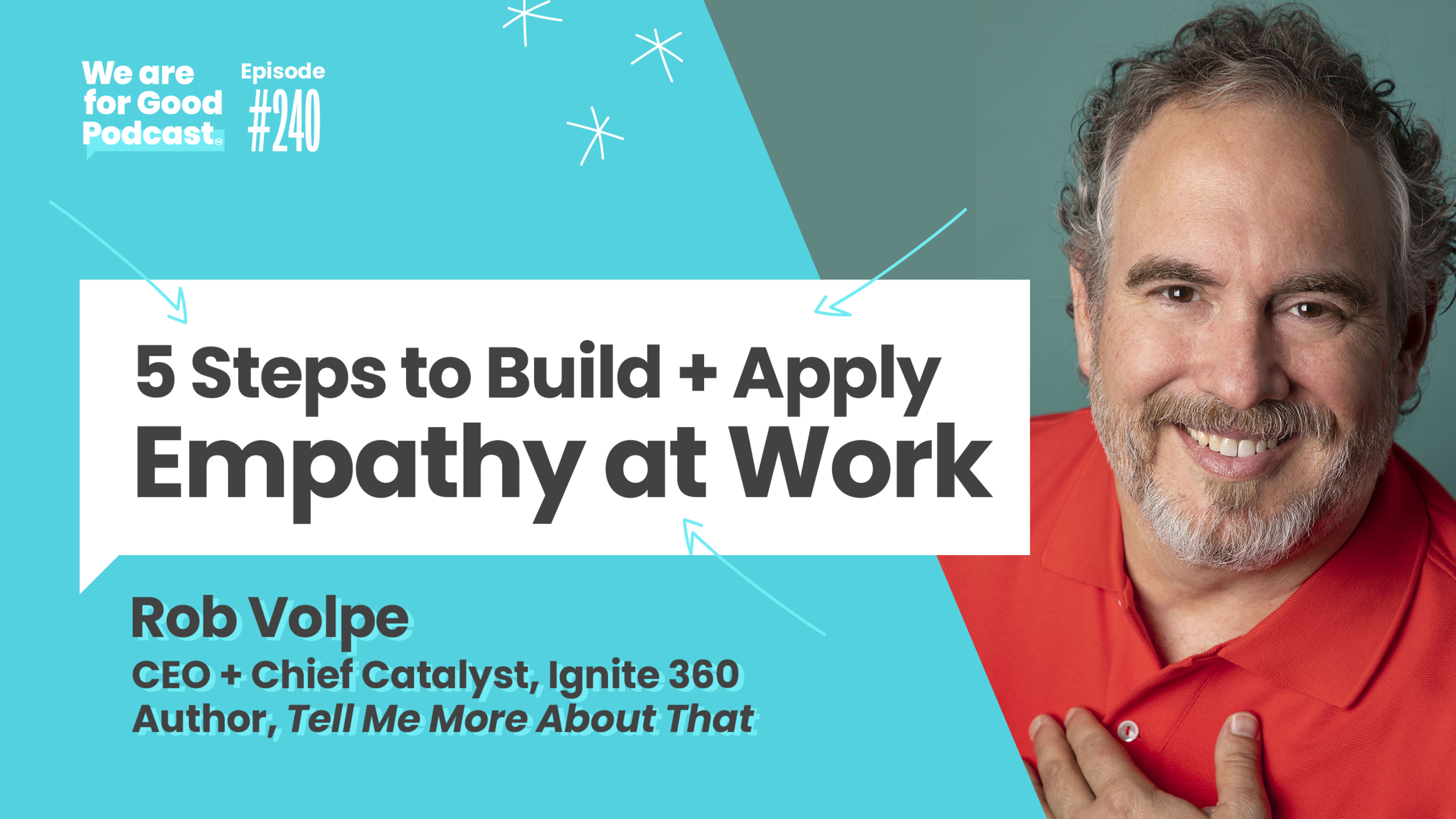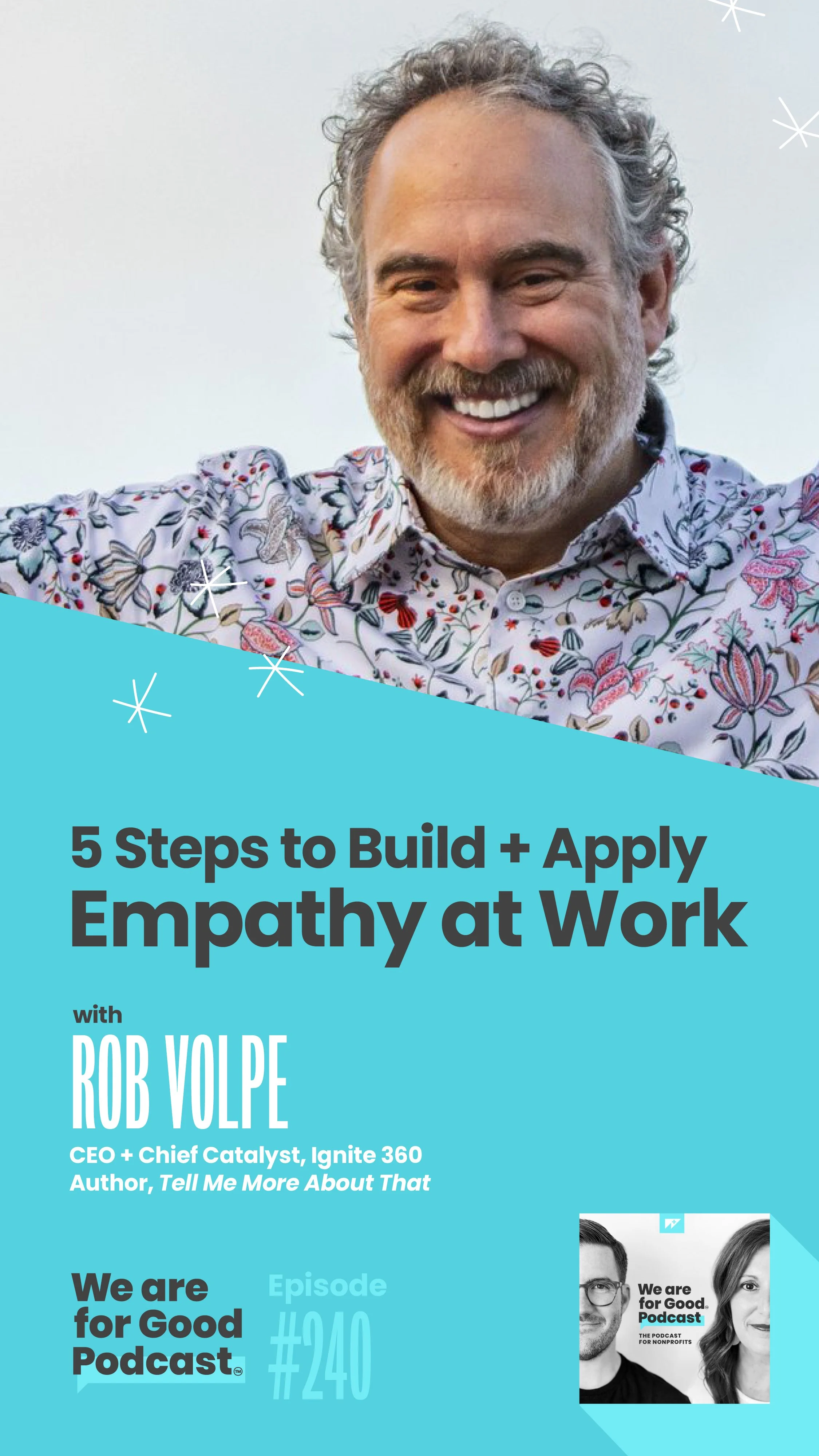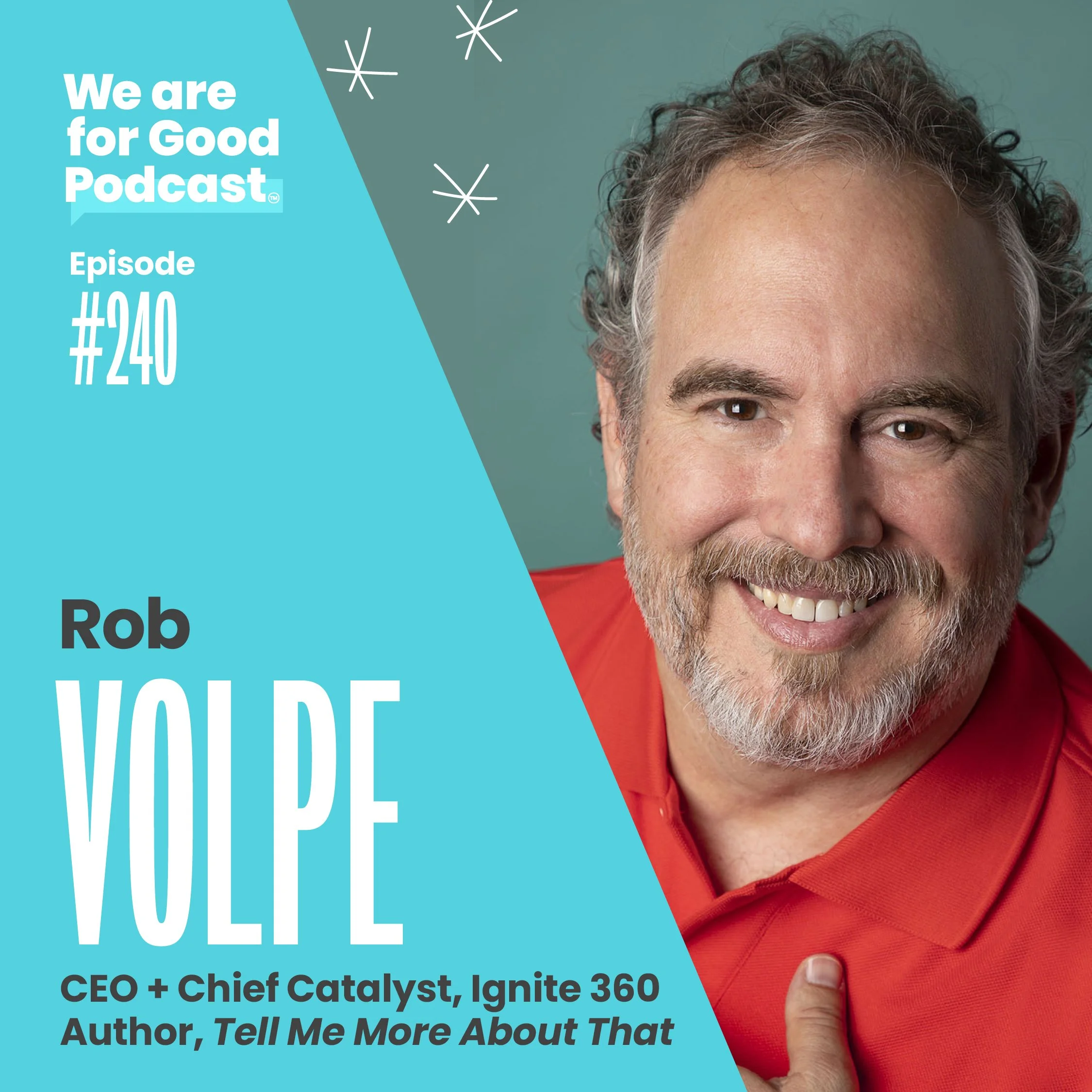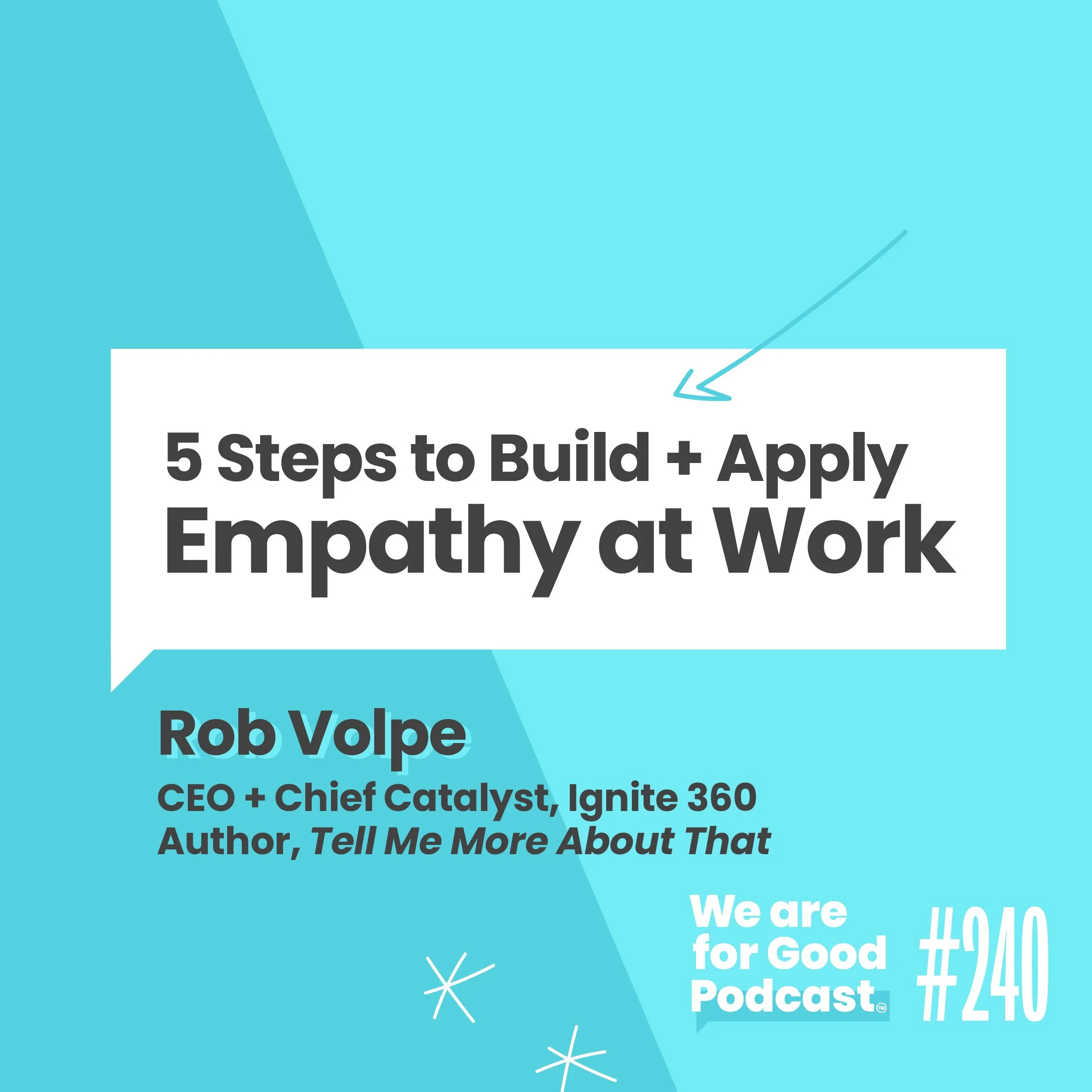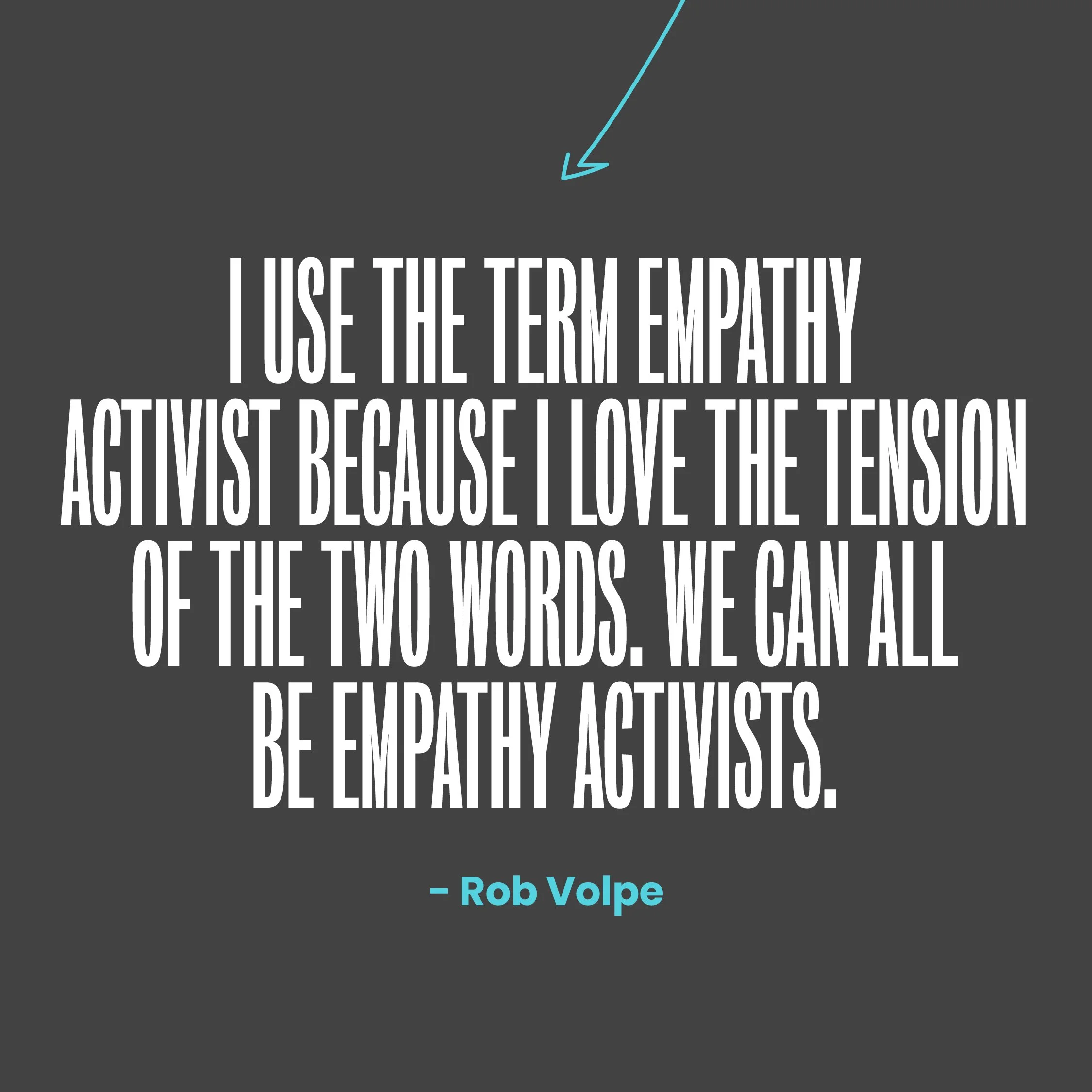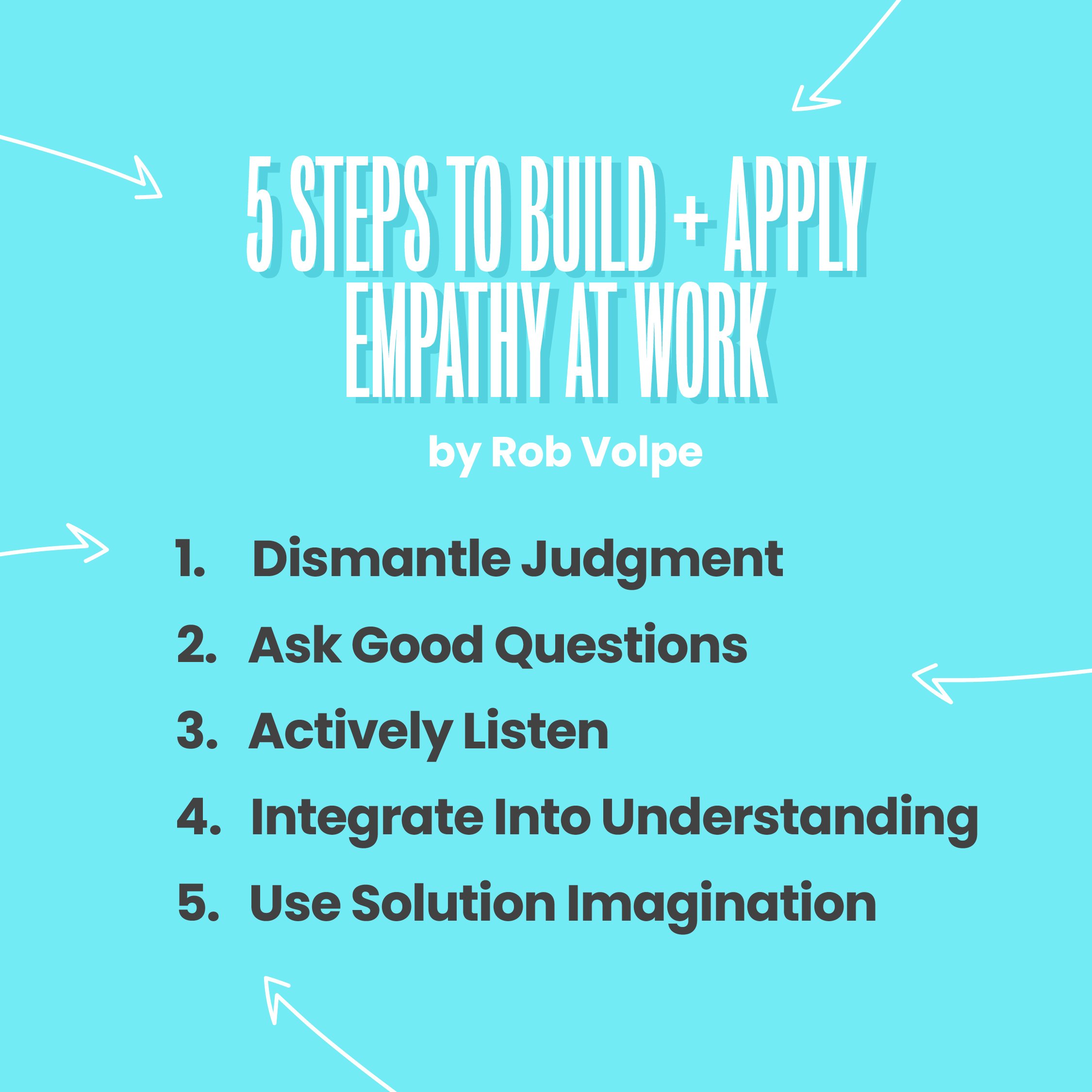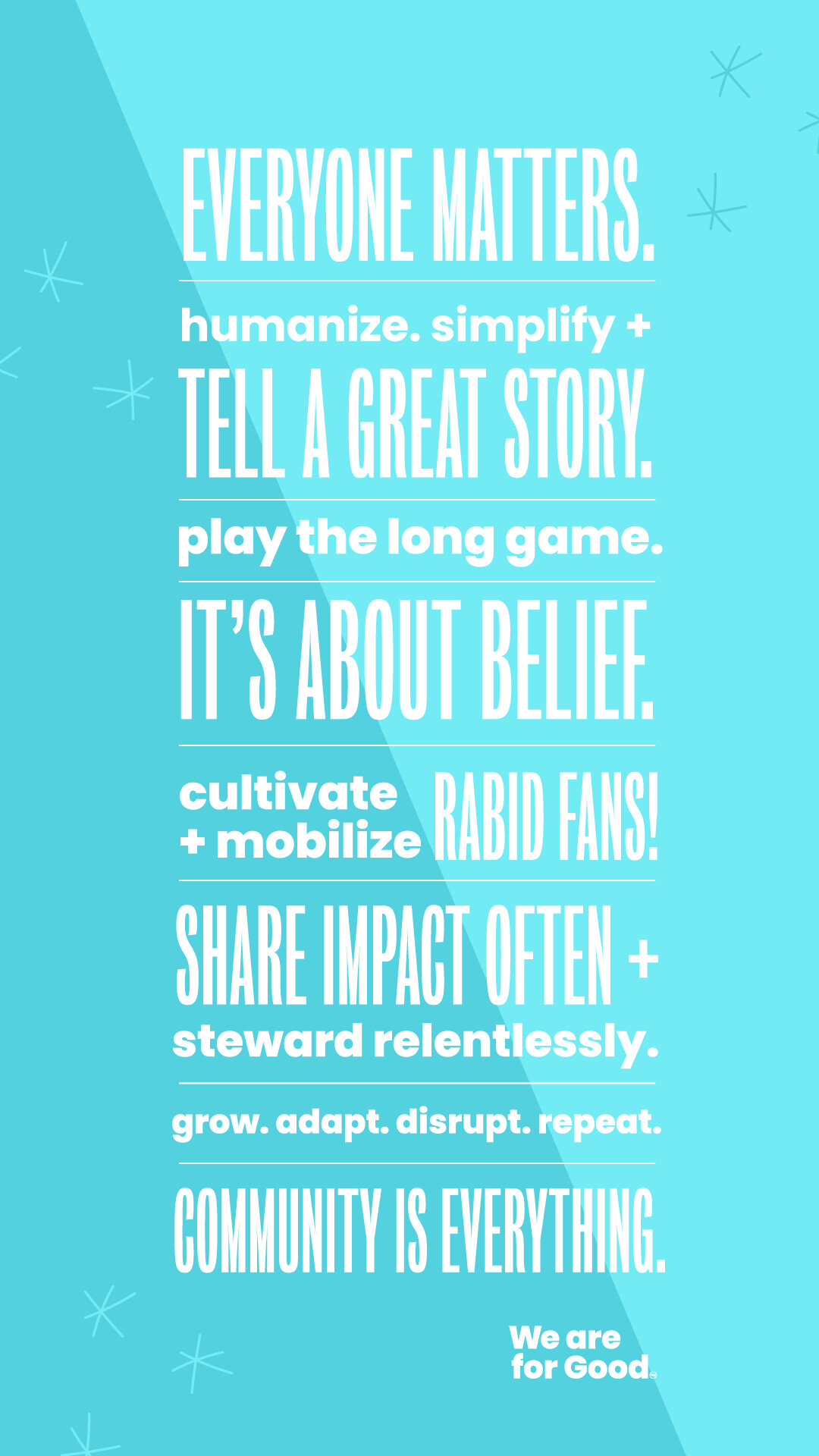240. 5 Steps to Build and Apply Empathy at Work - Rob Volpe
Listen to this episode
Overview
Meet Rob. After watching industry experts ignore their intuition as their rational brand overtook gut instinct, this heart-wired CEO looked toward a possible solution: empathy. He pointed his attention and creative agency, Ignite 360, toward exploring how empathy helps industry giants and emerging brands innovate and grow. Only 1/4 of employees believe their employers possess enough empathy. We're talking about the basics, how to train your mind to respond with compassion, and why cognitive empathy may be the key to all our problems.
💡Learn:
👆5️⃣ steps to build and apply empathy at work
👆Exploring his book: Tell Me More About That: Solving the Empathy Crisis One Conversation at a Time
👆Emotional empathy vs. cognitive empathy
👆How to develop consumer-first strategies
Today’s Guest
Rob Volpe, Author, Speaker, CEO, Chief Catalyst, Empathy Activist at Ignite 360
“One fact from another study was that one in four employees find that only one in four organizations are actually sufficiently empathetic. And yet, 90% of Gen Z, says that they are more likely to stay at an organization when they have empathetic leadership. So there’s some tension there and therefore we’ve got all these issues.”
Episode Transcript
Download Full Episode Transcript Here
Episode highlights
Rob’s story and journey to where he is today (3:40)
Tone setting and where to begin (13:00)
The two types of empathy: cognitive and emotional (14:30)
The two types of empathy and their role in the workplace (15:00)
Rob’s new book: Tell Me More About That: Solving the Empathy Crisis One Conversation at a Time (21:00)
A powerful moment of philanthropy in Rob’s life (29:00)
Rob’s One Good Thing: Be courageous in whatever way works for you. (34:00)
powerful quotes
“Those years were really challenging. They were very difficult. But my superpower of empathy really developed then because I started to use empathy as my survival skill.” -Rob
“The University of Michigan did a meta analysis of student life, from 1979 to 2009, from I think it was 76 universities, and they found that starting in 2001, there was a 40% decline in empathy skills, and the ability to see the point of view of your classmates compared to the previous decades.” -Rob
“I started Ignite 360, and we do research for our clients. We help our clients understand human behavior, and through that understanding, our clients are able to improve their services, build better products, and create more compelling marketing, communications, and fundraising campaigns. In order to do that, you've got to have empathy.” -Rob
“It's particularly challenging when you're working in the nonprofit space, because you know, it's a space of compassion. And that is something that empathy fuels.” -Rob
“You've got people that really care because of that compassion. And yet, you're still you're running a business, it's a nonprofit business, but there's still the business element, the money, he still has to come in, so that that can fund the program so that you can serve people, you have to evaluate it.” -Rob
“Everybody is born with empathy.” -Rob
“One fact from another study was that one in four employees find that only one in four organizations are actually sufficiently empathetic. And yet, 90% of Gen Z, says that they are more likely to stay at an organization when they have empathetic leadership. So there's some tension there and therefore we've got all these issues.” -Rob
“When we have understanding, the common ground starts to come together.” -Becky
“My mom inspires me to make a difference.” -Rob
“Doing the things you can do within your reach to make the world a better place.” -Rob
“I use the term empathy activist because I love the tension of the two words. We can all be empathy activists.” -Rob
“Activism takes form in many different ways in what is right for people. It is about stepping in and speaking up.” -Rob
“Be courageous in whatever way, shape, or form. Follow the five steps, try to have some empathy with somebody. Change the conversation.” -Rob
5 Steps to Build and Apply Empathy at Work
Dismantle Judgment
Ask Good Questions
Actively Listen
Integrate Into Understanding
Use Solution Imagination
Connect with Rob and ignite 360
Website / LinkedIn / Book: Tell Me More About That
Rate, Review, & Follow on Apple Podcasts
Are you a fan of the We Are For Good Podcast? Please consider rating and reviewing our show! This helps us serve more do-gooders — just like you — grow their own impact uprising.
First time doing reviewing a podcast? Don’t sweat - it’s super easy! Click here, scroll to the bottom, tap to rate the show with stars, and then click “Write a Review.” We’d love to hear what you loved most about this episode!
While you’re there, if you haven’t done so already, would you consider subscribing to the podcast? We curate inspiring conversations weekly to help you do more for your mission (and the occasional surprise minisode too!) and if you’re not subscribed, you could totally out. Subscribe now!
Join the Good Community!
The We are for good community
This is a safe place for deeper conversations. While we love this podcast, it is a very one-sided dialogue. It is great for starting conversations, but not continuing them. You can find friends, colleagues, and others to champion alongside. We believe community is everything and we wanted to create a place where people could learn and thrive and grow together (and also have a whole lot of fun).

